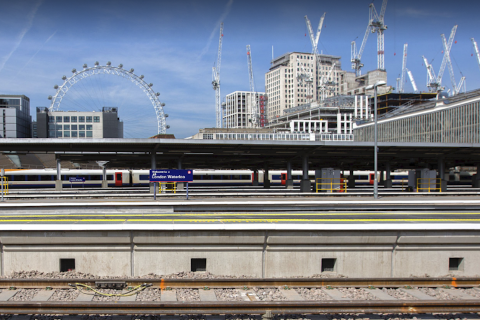Brussels does not accept the main rail network concession for NS

The European Commission does not accept the awarding of the main domestic train traffic for the coming years to NS. The Netherlands must provide explanations again. The case could end up in front of the European court, which can impose fines and penalties.
The commission, responsible for ensuring fair competition in the EU, formally put the Netherlands in default in July and is doing so again now. This is because the Netherlands proceeded and granted the main rail network concession to NS in December.
Because the government privately agreed with NS that the company could operate the main rail network from 2025 to 2033, competitors had no chance. Regional transport companies such as Arriva, Keolis and Qbuzz, complained about this in Brussels, united under the Federation of Mobility Companies Netherlands. The commission argues that the government should have publicly tendered the concession so that every player in the market could have applied. Furthermore, the commission suspects that the concession is also far too broad. The government should have investigated whether parts of it could have been commercially exploited.
The government insists that competition on the busy Dutch rail network is difficult to manage. For example, passengers would have to change trains more often. “I cannot leave our interconnected domestic network to the market now,” Heijnen said earlier. “Now is not the time to experiment.”
Looking forward
The Netherlands still has a chance to explain within two months how it intends to address the commission’s objections. If that does not satisfy Brussels, a final warning may follow with instructions for the government. If the government also ignores this, it must fear that the commission will take the Netherlands to the European Court of Justice.
If the case ends up in front of the European court, it could cost the Netherlands dearly. The court can impose a fine of 3,892,000 euros per violation, with no maximum limit. Moreover, a penalty can be imposed ranging from 4,170 euros to a maximum of 250,200 euros per day.
Update: Outgoing Secretary of State Vivianne Heijnen (Rail) “took this into account” and is “therefore not surprised.” She maintains that the contract with NS is lawful and that she has acted carefully. She mentions that the Dutch Parliament supports her. “I will continue to engage with the European Commission to prevent a lawsuit at the Court of Justice of the European Union.”
This article was first published in Dutch by our sister publication SpoorPro.nl.
Further reading:





In Denmark a similar thing happened, where the state owned train operating company DSB also got their concession for long distance traffic extended by 10 years.
Not much liberalization going on there…
“For example, passengers would _supposedly_ have to change trains more often” would be more correct, since it’s (still, like in the Dutch version) just a theorem which _in fact_ is untrue, since awarding the same concession to Arriva, Keolis (not “Keels”) or Qbuzz would enable them to offer exactly the same lines.
I thought the press and media were important to our democratic rule of law to keep the executive honest by checking them, not parrotting. It seems journalists themselves disagree.
We don’t need private companies making profits from running railways.
Arriva = German state railway company.
Keolis = Frenche state railway company.
Qbuzz = Italian state railway company.
And NS makes its profits off station facilities (eating + drinking, shops) and real estate, so it’s only barely interested in the transportation of people by rail.
So the contract and its enforcement make more of a difference, and the ministry shows that it’s not interested in rail passengers’ interests (more in tarmac) – the provinces are better at that.